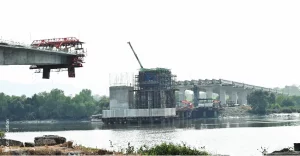How is the Government of India helping the Real Estate Sector Recover from the Post-COVID Impact?

The Indian real estate industry has seen some of the significant shifts in the buying and selling trends over the years. However, the Novel Coronavirus outbreak led to a slow yet significant decline in the demand for real estate properties in 2020. The crisis had restricted many prospective buyers’ spending capacity while laborers’ migration led to a shortage of workforce at construction sites. Overall, the real estate sector was impacted considerably.
To revive the real estate industry and recover from a heap of crisis, the industry leaders had urged the Government to relax regulations and prepare for difficult times. The Ministry of Finance had already announced a relief package of Rs. 1.7 Lakh Crore in the March 2020 budget. In addition to this, the Government further announced the economic package of Rs. 20 Lakh Crore targeted towards MSMEs, NBFCs, Employee Provident Funds and Real Estate Companies. This package came alongside a dedicated set of measures presented by the RBI, including liquidity and financing cost relaxations.
Further, the Government broadened the schedule to complete establishments and enlistment by half a year, offering significant alleviation to the real estate industry. During the difficult times, developers were enthusiastically expecting the launch of REITs (Real Estate Investment Trusts), which would have ensured easier liquidity for the real estate sector. However, the absence of REITs added to the real estate developers’ problems.
Here are some of the current real estate trends in India as announced from March 2020:
- The Government of India recognized the Coronavirus as an unforeseeable situation under the Force Majeure clause. As a result, RERAs of more than 20 states in the country gave a 6-9 months extension for the registration of projects. This was regarded as a major relief by developers as the construction of projects had come to a halt due to the large-scale reverse-migration of laborers.
- Due to the COVID-19 driven lockdown and the cross-country limitations, the Reserve Bank of India permitted the banks and other financial organizations a three-month loan moratorium on EMIs from March to May 2020. It was later given an additional three-month extension until August 2020. The moratorium points towards helping borrowers and the real estate sector which was reeling under a severe financial tension for a long time.
- RBI also declared a one-year extension to the Date of Commencement of Commercial Operations (DCCO) of project loans for real estate projects that could not be completed due to unforeseen reasons, giving further relief to the Indian real estate sector.
Indeed, even previously, the Government was consistently helping in developing the real estate industry in India. From RERA to Amendment to Benami Transactions to Real Estate Investment Trust, these demonstrations were a portion of the ruling Government’s significant accomplishments that had decidedly affected Indian real estate. As the country battles against the COVID-19 pandemic, developers and the government will have to cooperate to counter the effect in a post-pandemic world. We, at Mahindra Lifespaces, abide by the principles of sustainable urbanization and responsible co-operation. In accordance with the initiatives introduced by the Government of India, Mahindra Lifespaces will continue its efforts towards providing joyful homecomings to all.




















